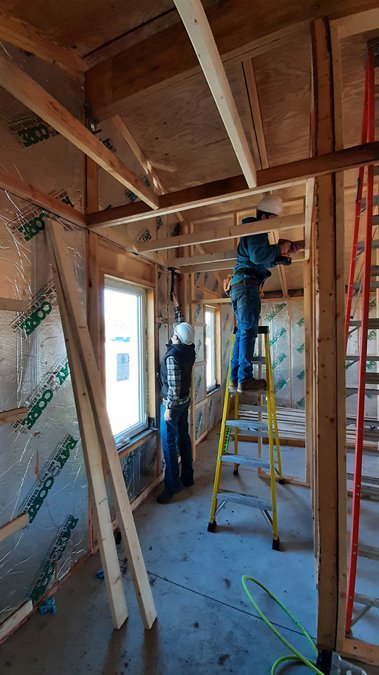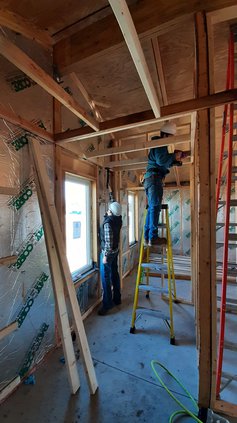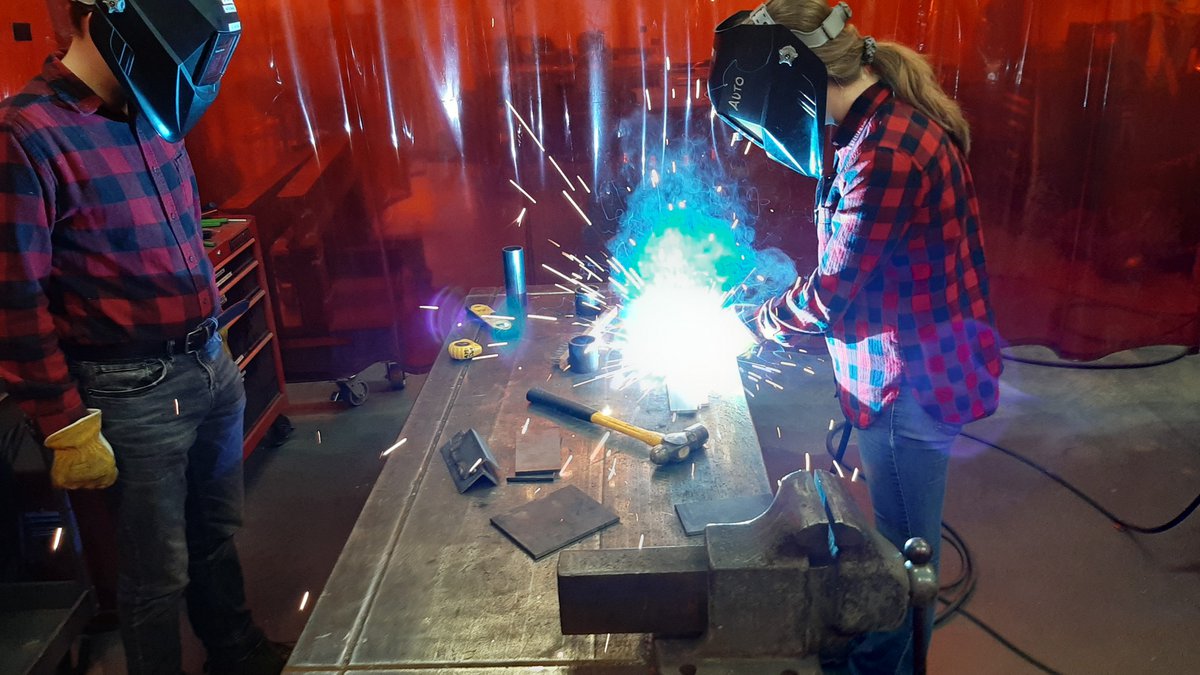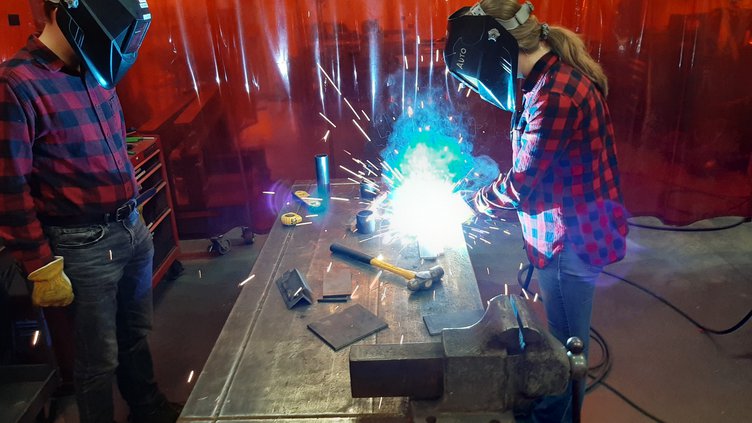



MANHATTAN — A Kansas State University fifth-year architecture studio is taking top honors for designing a zero-energy home in St. John.
The K-State Net Positive Studio earned recognition in the U.S. Department of Energy Solar Decathlon 2020 Build Challenge, which is a collegiate competition where teams design and build high-performance, low-carbon homes powered by renewable energy.
The College of Architecture, Planning & Design student studio ranked in three contests: second place in the market potential category, third place in the architecture category and third place in the affordability and financial feasibility category.
“It was a good showing for the team, who represented the studio’s work on affordable, net zero housing that actually started in 2018 and included architecture students from three different academic years,” said Michael Gibson, associate professor of architecture and creator and leader of the Net Positive Studio.
K-State was one of nine university teams from the U.S., Canada, Europe and South America taking part in the Solar Decathlon Build Challenge. The competition was originally set to take place in Washington, D.C., last summer but was delayed because of the pandemic and became a virtual event in April 2021. Teams were recognized on how they blended architectural and engineering excellence with innovation.
“We were in very strong company with the other Build Challenge teams — all of which had to navigate the challenges of COVID-19 to get their projects completed,” Gibson said.
For the competition, students in the Net Positive Studio built a zero-energy home that is being completed in St. John. Take a virtual tour of the K-State zero-energy home at https://www.solardecathlon.gov/virtual_village/.
The K-State home was designed, prefabricated and assembled by the fifth-year architecture studio led by Gibson in 2019-2021. The Net Positive Studio worked with Stafford County Economic Development to come up with a design for affordable, energy-efficient rental housing to be built in St. John.
The three-bedroom, two-bathroom home includes a solar power system; passive design features such as passive solar, natural ventilation and daylight; high-performance vinyl windows provided by Interstate Glass Co. from Junction City; and other features that make it highly energy efficient. Using only about one-fourth of the energy consumed by a typical new home, the net zero home’s utility costs will be offset on an annual basis by its solar panels.
The mission of the Net Positive Studio is to model how sustainable housing is within reach for Kansas communities of all sizes, Gibson said. The studio is currently working with Manhattan Area Habitat for Humanity on a home for Ogden and will be working with new nonprofit partners in the coming years to design and build more affordable net-zero homes.
Read more about the Net Positive Studio in the 2020 issue of Seek magazine at https://www.k-state.edu/seek/2020/welcome-home/index.html.





